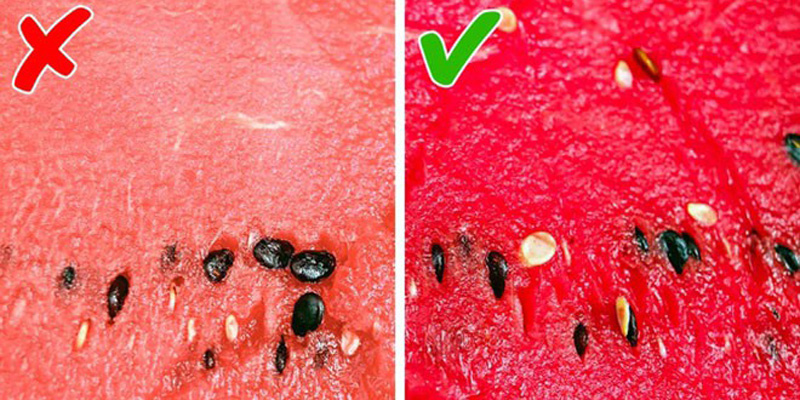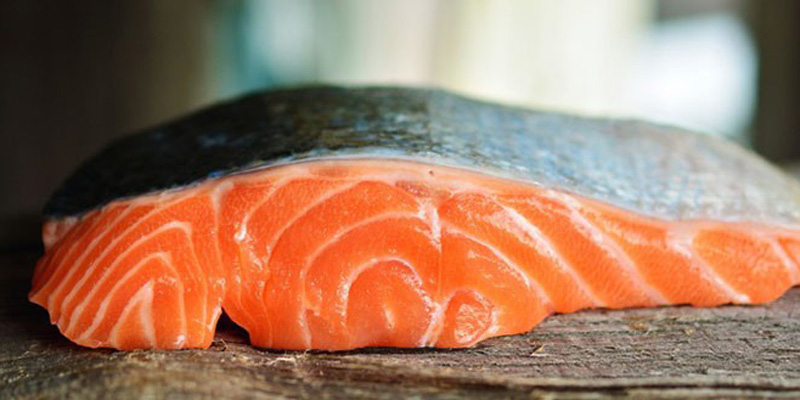1

Unopened milk usually has a shelf life of about a week past its printed expiration date, provided it’s stored properly. Once opened, milk should be refrigerated at 4 degrees Celsius. Do not store it on the door of the fridge!
2
– Unopened mayonnaise usually lasts for about a year, while opened mayonnaise will only keep for about a month if refrigerated.
– Unopened ketchup has a shelf life of around four months, and once opened, it will last for about three months if kept in the fridge.
– Honey has an indefinite shelf life if unopened, but once opened, it will last for about three years.
– Unopened mustard can last for up to two years, and once opened, it will keep for about a year.
However, even if these condiments are within their expiration dates, if you notice any changes in their flavor, texture, or color, it’s best to discard them.
3 Watermelon

– If the seeds of the watermelon easily detach from the flesh, it’s a sign that the fruit is past its prime.
– If the flesh of the watermelon looks pale, it’s likely an older melon. Fresh watermelon has bright pink or deep red flesh, a sweet aroma, and a juicy, refreshing taste.
4 Beef
Beef can stay fresh for about two days in the fridge or a few months in the freezer. However, if you notice any color changes, sliminess, or unpleasant odors, it’s best to discard it.
5 Bacon
Unopened bacon can be stored in the fridge for up to two weeks. Keep an eye out for any color changes to green, sliminess, excessive softness, or unpleasant odors, as these are signs that the bacon has gone bad.
6 Eggs

Eggs can stay fresh for about three weeks when stored in the fridge and up to a year in the freezer. A simple way to test if an egg is still good is to place it in a glass of water. If it sinks, it’s still fresh; if it floats, it’s best to discard it.
7 Almonds
If stored in an airtight container, almonds will stay fresh for about two to four weeks after opening (keep the container in a cool, dark place, or even in the fridge). If stored in the fridge, they can last for up to a year. However, if you spot any black spots on the shells, it’s best to throw them out.
8 Olive Oil
Olive oil usually has a shelf life of one to two years. However, it can go rancid faster if stored in a warm place or exposed to sunlight. It’s best to store it in the fridge, and when needed, simply warm it up to return it to a liquid state.
9
Unopened yogurt will stay fresh for about a week in the fridge, and once opened, it will keep for about five days. Whether opened or not, if you notice any color changes or mold, discard it immediately.
10 Salmon

Fresh salmon will stay good for about two days in the fridge and two to three months in the freezer. If you notice any strange odors, discoloration, or if the fish becomes flaky or crumbly, discard it.
11 Prepackaged Salad Greens
If the salad greens or lettuce have turned dark and appear bruised or crushed, they have likely gone bad. Unopened packages of salad greens usually last for about ten days, and once opened, they will keep for about five days in the fridge.
Consuming spoiled food can lead to various health issues. These simple tips will help you avoid eating compromised food and maintain your overall health.
Source: afamily.vn
Ten Strategies to Streamline Your Cooking Process
Are you a busy housewife looking for ways to save time in the kitchen? Did you know that flossing can also help you out? Check out these 10 tips to help you quickly and easily prepare delicious meals for your family. Learn how to peel garlic in 10 seconds and cut cherry tomatoes quickly for a healthy and tasty meal.
4 Strategies for Storing Chili for One Month
Do you want to enjoy the fresh, spicy flavor of chili peppers all month long? Look no further! This article provides tips and tricks for storing chili peppers so that they stay fresh and flavorful for up to a month. Learn how to best preserve your peppers and savor their zesty taste for weeks to come.
8 Common Mistakes People Make with Cutting Boards
Are you using your cutting board correctly? Many Vietnamese households rely on cutting boards in their kitchen, but not everyone knows how to use them properly, especially when it comes to wooden cutting boards. Check out these 8 mistakes to avoid when using a cutting board to ensure both hygiene and safety for everyone in your family.
Recognizing Spoilage and Best Practices for Storing Milk
Dien May XANH is advocating for the careful storage of milk to ensure people consume the nutrition-rich beverage that is safe and healthy. Milk, a source of vitamins and minerals essential to our bodies’ functioning, can become tainted if not properly handled, causing painful, and in some cases, severe gastrointestinal distress.



































